No, the “veil between the world thinning” is a 20th century invention.
Tag: history
Searches can’t find the animal, and science has shown there isn’t the food supply to sustain a population of such creatures. So where did the story come from?
Vox Hiberionacum, the excellent debunker of historical nonsense related to Ireland has an informed examination of the subject on Twitter.
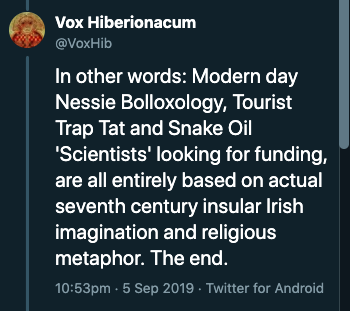
I have a confession. I have a twitter crush on Dr GIllian Kenney aka MedievalGill. She is one of a number of historians I follow there – probably an expression of my thwarted desire to be a historian. She specialises in “medieval sex magic women” (her description). I have not read her academic work, but her presence on Twitter is a joy.
The reason I am mentioning her now is because I was reminded about one of her pieces of writing from the time of the Irish gay marriage referendum. Back then (summer 2015) she was annoyed by all the people talking about “traditional marriage” in the narrow selective terms of the last 100 years or so. As an expert in the area (she has build her career on this) she instead wrote a great on what “traditional Irish marriage looks like when you go back 1000 years.
I can’t find the original one now, but a version of it is available on History Today.
There is a great section in it that I keep referring people to:
“The idea of family was thus dynamic and prone to change. In addition to engaging in multiple marriages and divorcing at will, the widespread use of fosterage meant that people could belong to much bigger family units than a nuclear one. Children could have parents who had been divorced. There were stepchildren, foster children, children born to concubines and raised in a wife’s household, children raised in religious establishments (perhaps raised by many mothers) and so on.”
When I look at the country around me, and my own situation I feel happier knowing that there is no normal!
I am researching old maps of the world from the 1920s and 1930 for a project I am working on.
Two great resources I have found are:
http://www.hipkiss.org/data/maps.html – some maps here
http://www.oldmapsonline.org/ – map scans. But not as good quality, or as comprehensive (or well indexed) as this one
https://www.davidrumsey.com – excellent very high quality scans of maps through history that you can download.
I am really enjoying Adam Zamoyski’s “Rites of Peace – The Fall of Napoleon and the Congress of Vienna” (which reshaped Europe, cementing the position of the old guard, and gutted the aspirations for a new liberal order). It has loads of wonderful sketches of life back them. This one really amused me:

I am sure the lady was embarrassed at the time. But imagine if she knew that people would still be reading about it 200 years later!
In Stockholm’s Gamla Stan today I finally managed to track down the Axel Oxenstierna palace. Unless you are a history geek (like me) you wouldn’t know he was “Lord High Chancellor” of Sweden in the 1600s. With King Gustavus Adolphus he led Sweden into the 30 years war. Without their intervention it probably would only have been the 12 years war.
I have been looking for the house for a while. In amongst the old narrow twisting streets of the old town it was difficult to find, and surprisingly hard to to find the actual address. Some googling last night eventually gave me the address. And as I was in town yesterday I had to get there.
I love finding places like this. Small connections to the past, that are just a little obscure. And it is always more fun to go out specifically to find something with a particular link, than to just read about it on a plaque as you are passing by chance.
There was an article today in the Irish Times, from the descendent of a person who fought in the Easter Rising. He pointed out that “sharing the glory of ancestors is a rational as sharing their guilt”. This needs to be said a lot more in Ireland. We have a worrying tendency to place these heirs on a pedestal, and defer to their views and opinions as if they were the men and women of 1916. This is of course daft. And it is the sort of hereditary privilege that republicanism (actual republicanism and not the Sinn Fein sort) is against.
It is a short step from there to questioning the whole reverence that the events of the 1916 rising are given in Ireland. The proclamation in particular is regularly wheeled out to decry some action action or inaction of the government. Or to bemoan how the aspirations that triggered the rising and the founding of the state have been betrayed or abandoned. Which is of course bollox.
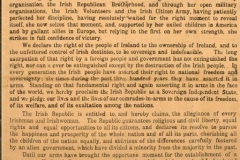 You can’t take a historical document like this, and use it to benchmark the progress of a modern country a century later*. People love to cherry pick and selectively quote bits of it. But you have to look at the whole, and put it in its proper context.
You can’t take a historical document like this, and use it to benchmark the progress of a modern country a century later*. People love to cherry pick and selectively quote bits of it. But you have to look at the whole, and put it in its proper context.
The admirable sentiment about
“guarantees religious and civil liberty, equal rights and equal opportunities to all its citizens”
must be put alongside
“supported by gallant allies in Europe”
and note that those allies had broken treaties to invade a small neutral country where they then committed atrocities there.
The statement most often abused from the document is the one saying
“cherishing all of the children of the nation equally”
If only I had a euro for every time someone invoked it to talk about how not enough was being done to help children struggling with poverty, education issues, homelessness, special needs or whatever. These are real concerns, and ones the government should be addressing. But because this is the right thing to do, and not because of a faded document from the beginning of the last century. Especially when “children” here was a shorthand for “citizens”. Or should we insist the government needs to re-focus on ensuing our youth do more to live up to the call for:
the readiness of its children to sacrifice themselves for the common good
The proclamation was a document written by a tiny unrepresentative group of people, who claimed to speak for the whole country. And while it has some admirable sentiments, more of them are questionable. And the whole thing is based on the idea that violence (and the regrettable deaths of innocents) is justifiable in pursuit of their goals. That alone makes it an anachronism today. And it certainly should not be constantly held up as the goal and height to which Irish people should be striving.
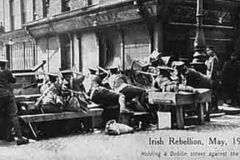 We should aspire to things, and decide how we want Ireland to be now, based on what we believe is right today. I would be very surprised if the men and women of 1916, good Catholics that most were, would have agreed with Gay Marriage, but modern Ireland voted overwhelmingly for it.
We should aspire to things, and decide how we want Ireland to be now, based on what we believe is right today. I would be very surprised if the men and women of 1916, good Catholics that most were, would have agreed with Gay Marriage, but modern Ireland voted overwhelmingly for it.
I recognise the sacrifice that was made, and acknowledge the part it played in the Ireland gaining it’s independence. But we have moved on. We can learn from the proclamation. But we should not be held captive to it.
* See also the US (pop 350 million) revering what a small number of rich white people (which included slave owners) wrote 230 years when it was a country of 2.5 million. Or the billions or religious who let their lives be dictated by what some tribes of itinerant bronze age goat herders wrote.
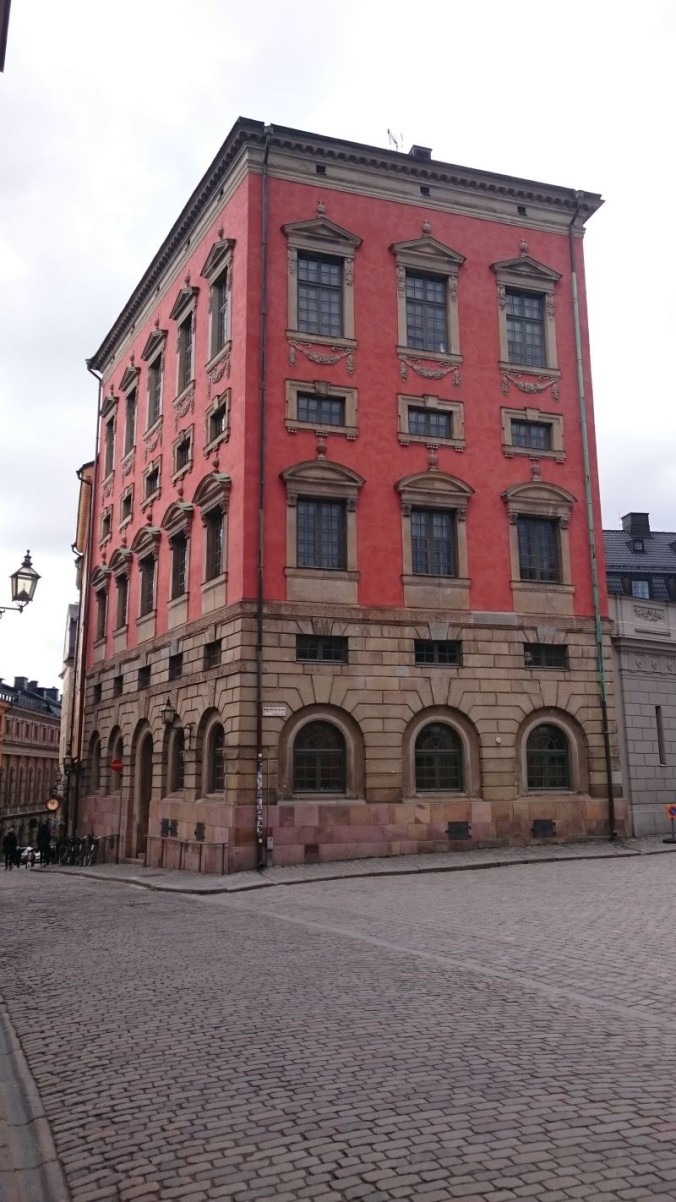
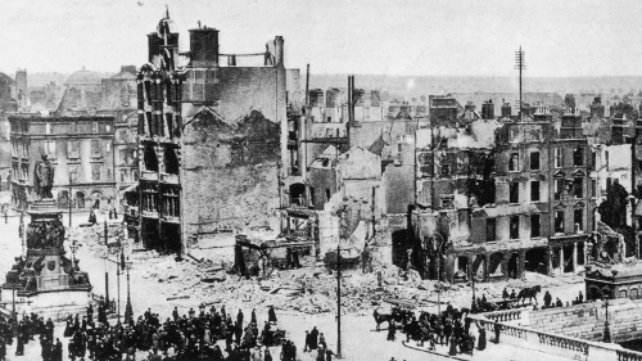
Recent Comments